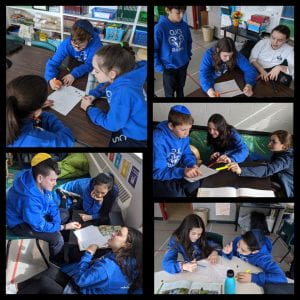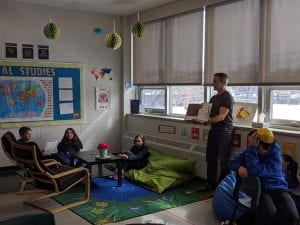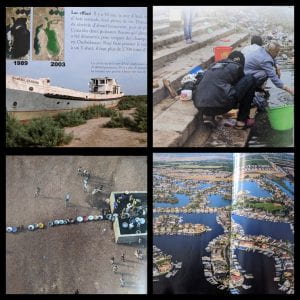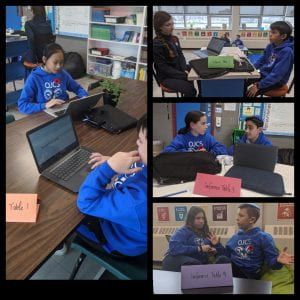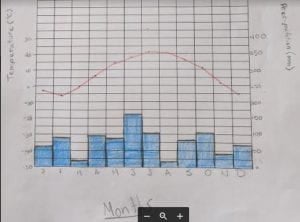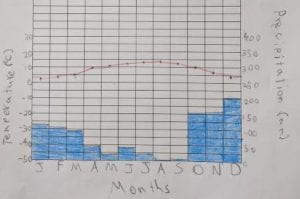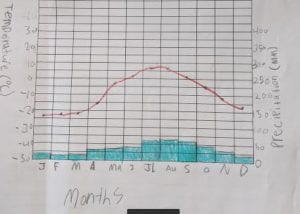Hi Everyone,
Introduction to Social Studies- Virtual Style!
I hope you had a great weekend and are all ready for our virtual classroom experience! It’s going to be a learning curve for everyone (including myself!) for where to find information, login information, getting used to the new schedule, but we got this 🙂 It’s an exciting journey together and one that I’m really looking forward to. It’s a great opportunity for you to dive into particular topics you’re curious or passionate about that relate to Social Studies (more to come on this, but be excited).
All your teachers are available throughout the day if you have questions. You have Mrs. Cleveland as your homeroom each morning and this is a great space to ask questions (I am sure others have the same questions as you too) and you have your Grade 6 Advisor too. Reach out to us and we’re here to help you throughout this journey.
Today we have our first ‘independent work’ period for Social Studies. This is a period where the class topic and tasks are given, and then you can work through the material on your own. What should you expect? It may be an article to read, video to watch, or activity to try out at home. This could be followed up by a task to complete and submit. An example of a task that could be assigned is a photo scavenger hunt, reflection to complete via Flipgrid, or questions to answer and submit through Google Docs. Whatever it is, it’s always my goal to have the instructions as clear as possible for your independent work period.
Today’s Plan- Wednesday, March 18th
We’re picking up where we left off at school. We have started our new unit ‘Canada’s Interactions with the Global Community’ …or lack of right now 🙂 You each created fantastic inquiry questions about things your curious to learn more about through the unit, and I’ll incorporate them along the way. One of the first tasks we started on was learning our world geography, so when we’re talking about different countries and places, you have an image of the world map in your mind and know where they are. So far we have learned and labelled North America, Central America, and South America.
TASK 1 (Suggested time: 20 minutes)
For the first part of our Social Studies class today (20 minutes), you are asked to continue to learn the country names for our next two continents (Europe and Asia). Visit the website Seterra and click the ‘play online’. If you have a printer, you can also click ‘printables’ to print out the maps like we did in class and try labelling it with an online Atlas (I’ll find a good online Atlas to use and add it to our ‘resource’ section of this blog at the top of this page.
TASK 2 (Suggested time: 55 minutes)
At the beginning of the year we learned about what it means to be an informed citizen and why this is important. The ‘big idea’ that we took away from it is that it’s important for us to use reliable sources and know what is going on in the world (current events) since we are so connected with one another. Start to think about what makes a source reliable or unreliable? What are the ‘clues’ on each website you go to that shows whether it is reliable or not?
For today, you are asked to find a ‘current event’ news article (Google News, CBC News, Scholastic News, Time for Kids). Here’s the CATCH: It needs to be a POSITIVE news article that is happening WITHIN Canada. We know that news tends to be negative so let’s all find some positive news to share with one another.
STEP 1: Find and read an article from an above source.
STEP 2: In a Google Doc., complete the following:
a. What is happening in the article?
b. Who is involved?
c. Where is it taking place in Canada?
d. Why should Canadians care about the issue presented and be informed about it?
Share your Google Doc. with Mrs. B by Friday at 9:00am. Be ready to share your current event at our first virtual class on Friday!
Looking forward to ‘seeing’ everyone!

